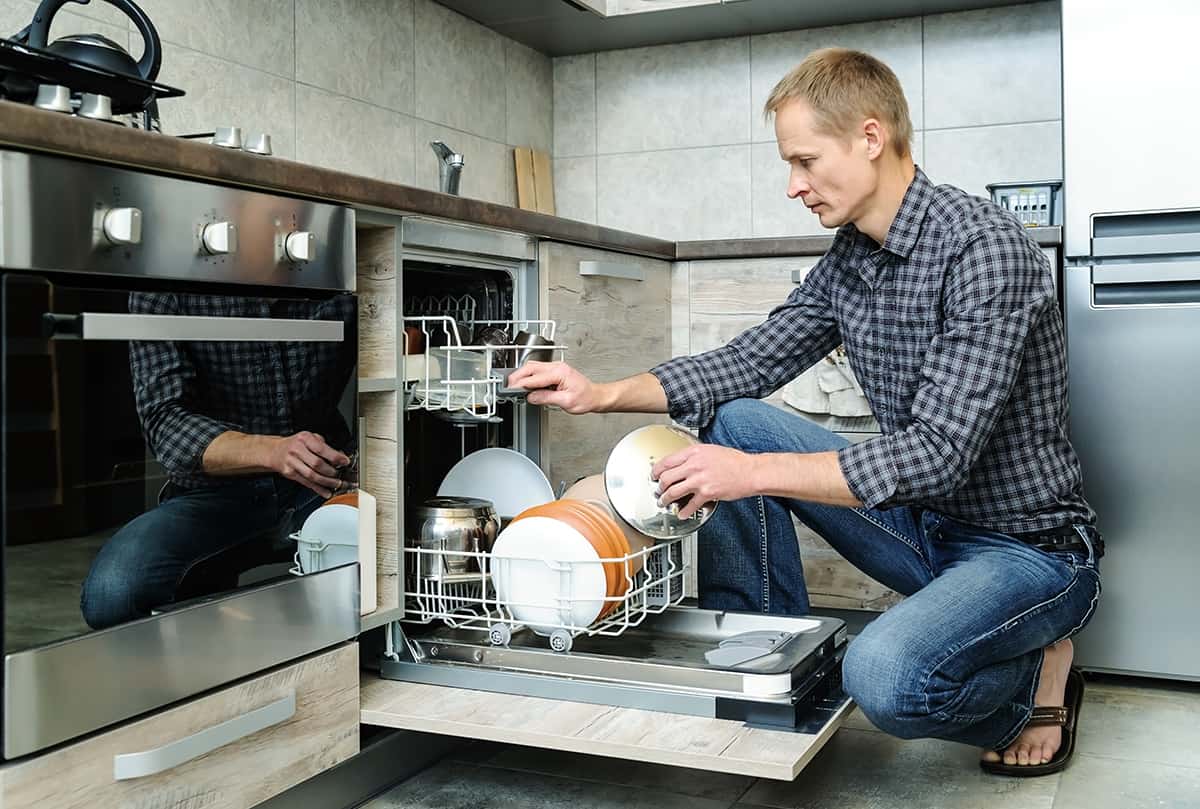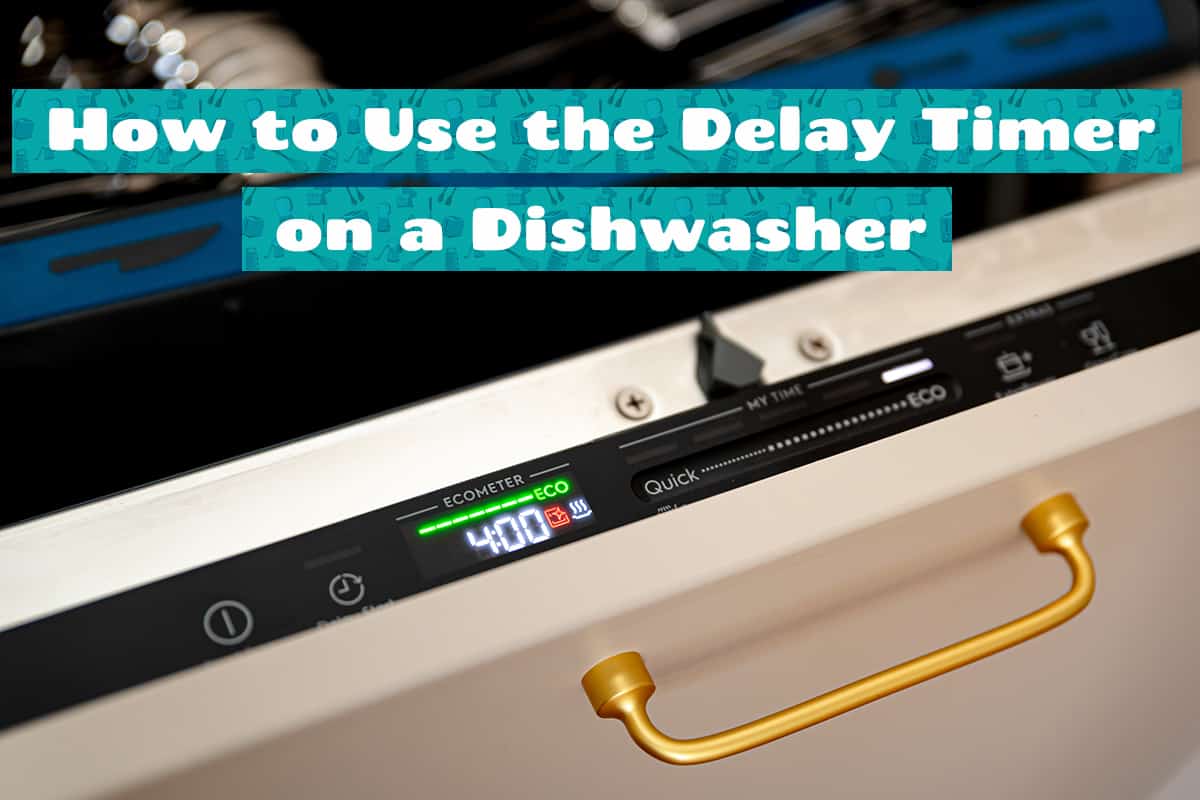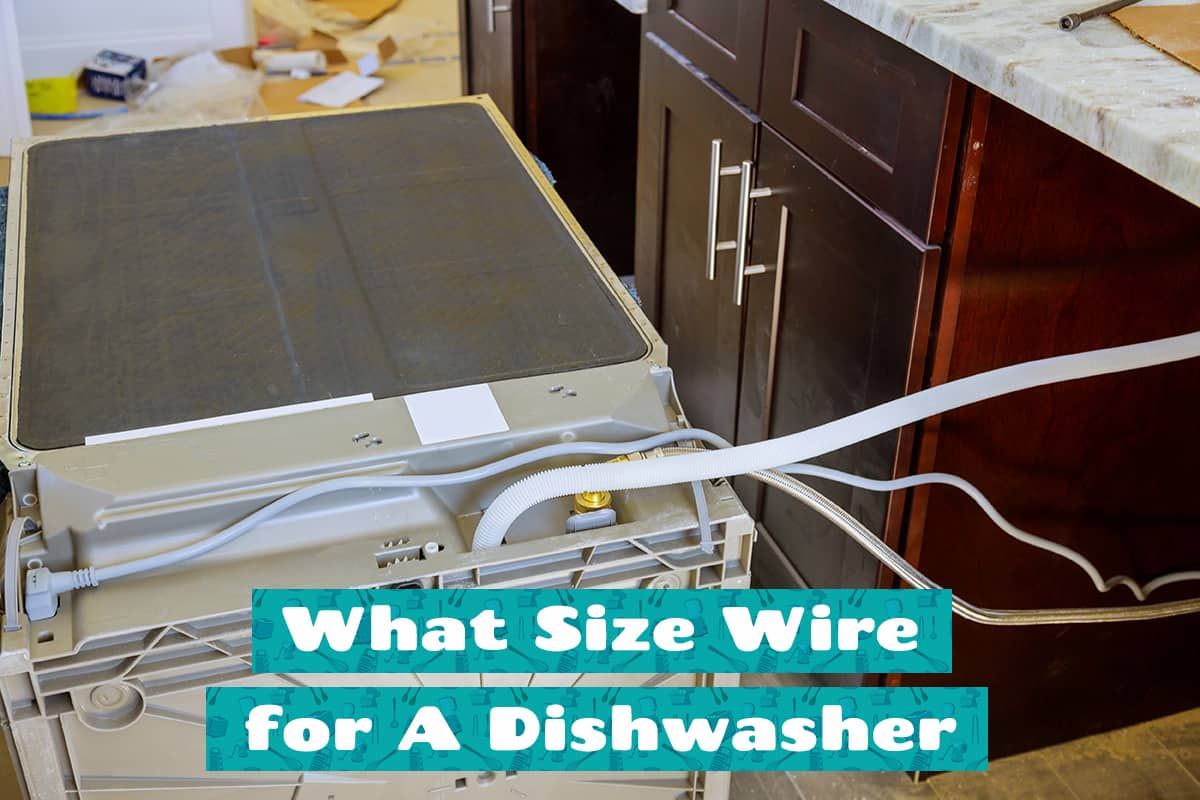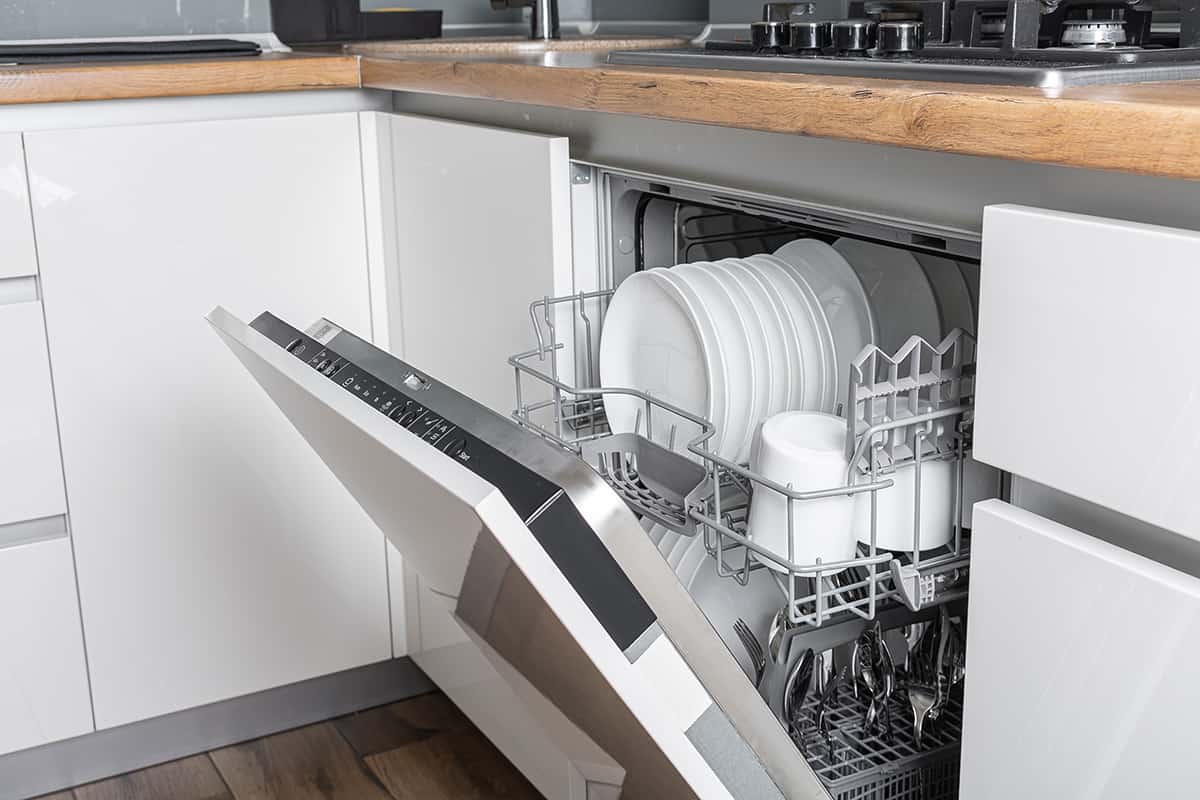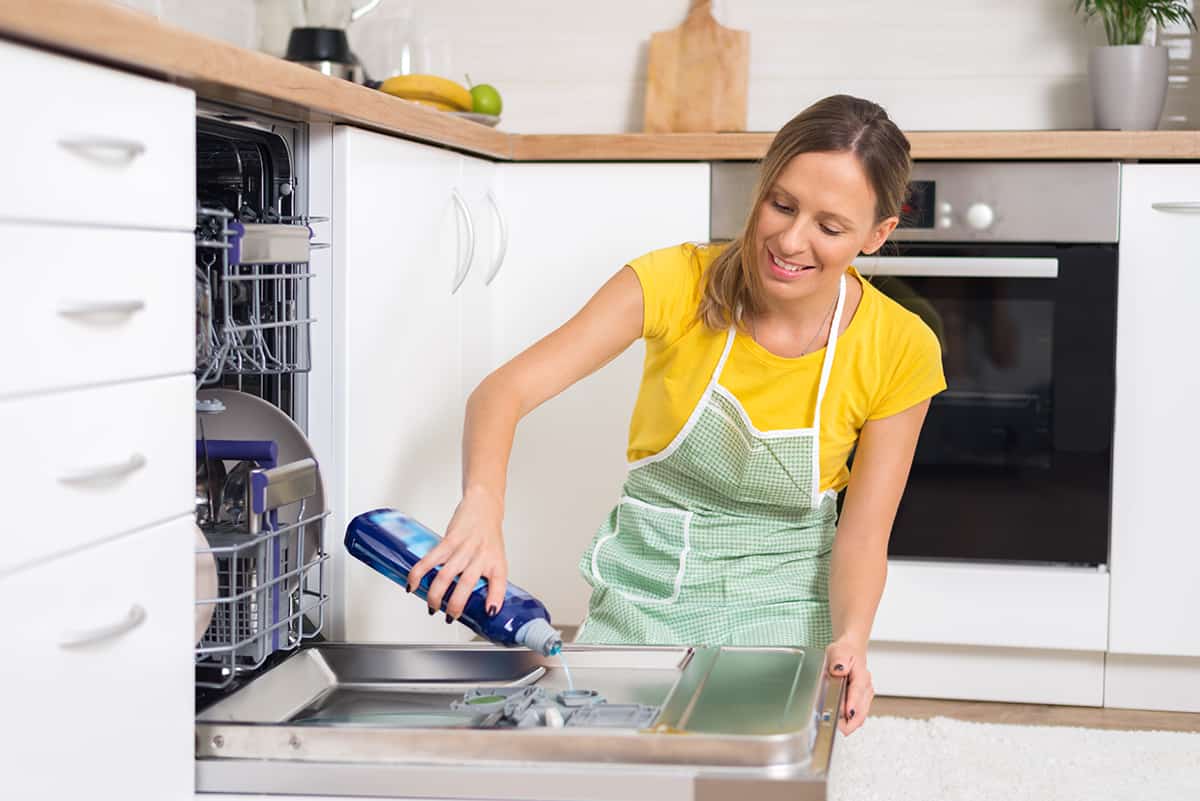You might think that dishwashers are the solution to many of life’s dirty problems, and in many cases, that’s true. They save time, water, and energy, but not everything can be safely washed inside these powerful machines. Some items need special care to avoid getting damaged or even ruining the dishwasher itself.
Items that you should not put inside a dishwasher include:
- Wooden items
- Cast iron cookware
- Non-stick pans
- Insulated travel mugs
- Sharp knives
- Crystal glassware
- Hand-painted ceramics
- Gold or silver accented dishware
- Pressure cooker lids
- Aluminum cookware
In this article, we’ll explore 20 common items you should never put in your dishwasher and explain the reasons behind these recommendations.
1. Wooden Items
Wooden items, including cutting boards and utensils, are sensitive to the extreme conditions inside a dishwasher. The combination of intense heat, water, and prolonged exposure can cause wood fibers to swell and contract, resulting in warping and cracking. Furthermore, harsh dishwasher detergents can strip away the natural oils of wooden items, leading to dryness and brittleness.
To preserve the durability and appearance of your wooden kitchenware, gently wash them by hand using warm, soapy water and a soft cloth or sponge. After washing, let them air dry completely, preferably in a well-ventilated area, to prevent moisture-induced damage.
2. Cast Iron Cookware
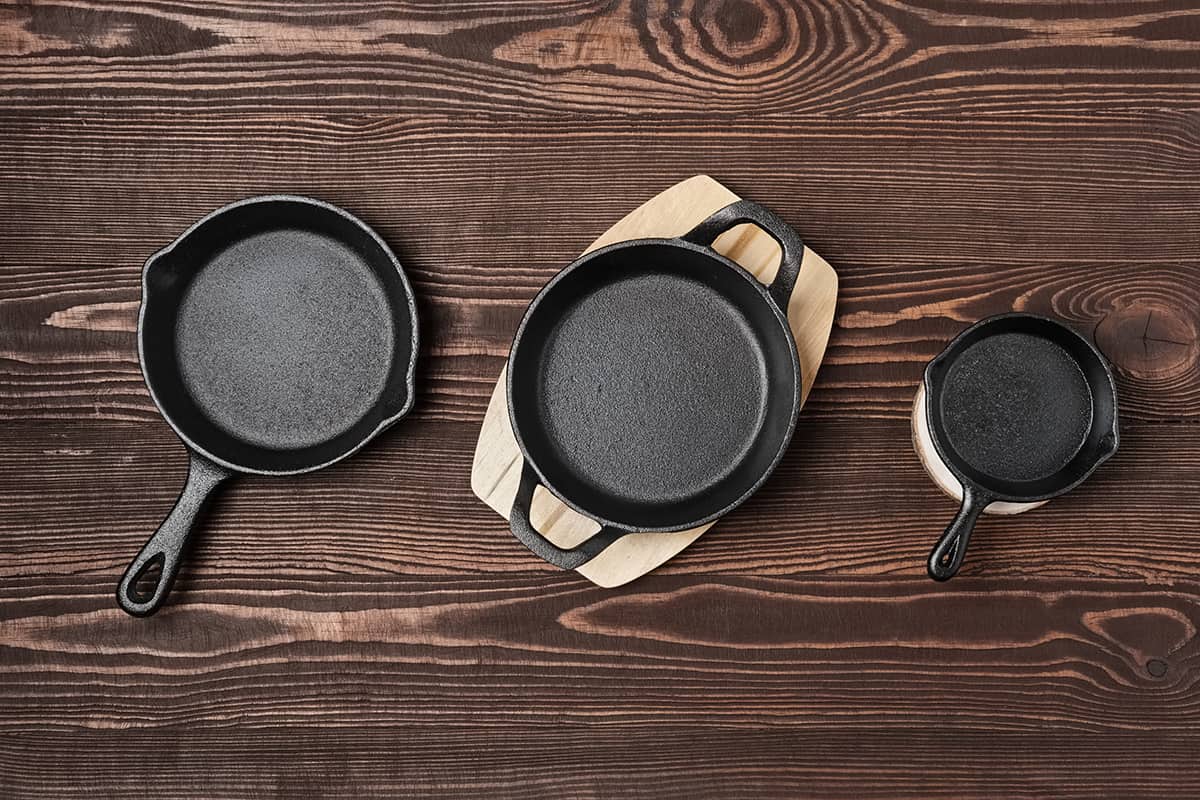
Cast iron pans boast a unique “seasoning” layer, which is essentially a thin film of oil that has bonded to the surface through a heating process. This protective layer not only prevents rust but also creates a naturally non-stick cooking surface. When cast iron pans are exposed to the harsh environment of a dishwasher, the powerful detergents and high temperatures can erode the seasoning, leaving the pan vulnerable to rust and diminishing its non-stick properties.
Instead, handwash it gently with mild soap and water, immediately dry it thoroughly, and apply a light layer of oil to maintain the seasoning.
3. Non-Stick Pans
Non-stick pans feature a unique coating designed to prevent food from sticking, making cooking and cleaning more convenient. However, exposing these pans to the aggressive environment of a dishwasher, with its high temperatures and abrasive detergents, can lead to the degradation of the non-stick surface. This damage reduces the pan’s effectiveness and may even result in harmful particles being released during cooking.
To ensure the longevity and performance of your non-stick pans, clean them gently by hand using warm, soapy water and a soft sponge or cloth, taking care not to scratch or damage the delicate non-stick surface.
4. Insulated Travel Mugs
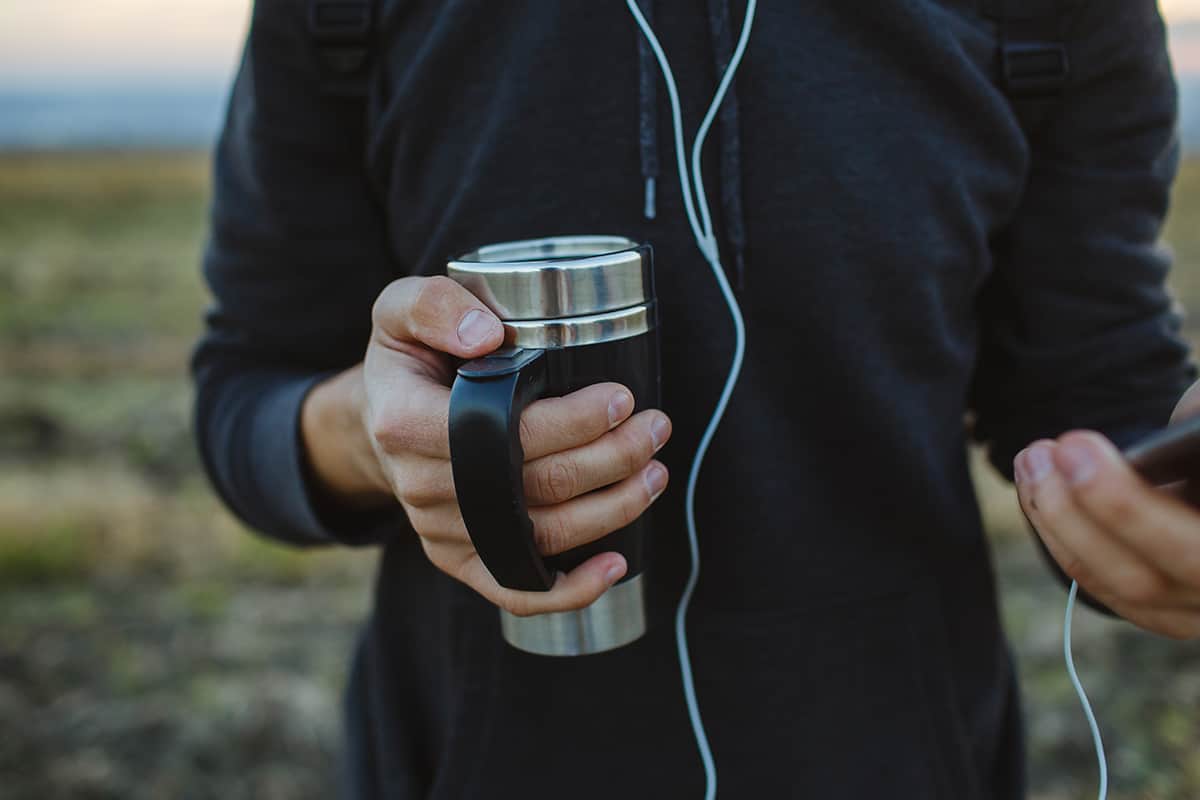
Travel mugs are designed with a unique insulating layer that effectively maintains the temperature of your beverages, whether hot or cold. When these mugs are washed in a dishwasher, the harsh chemicals, high heat, and water pressure can compromise the integrity of the insulation. However, some brands, like Swig, are the exception to this rule.
You can preserve the insulating properties and overall functionality of your travel mugs by cleaning them by hand using warm, soapy water and a soft cloth or sponge. After washing, let the mugs air dry completely, ensuring that the insulating layer remains intact and effective.
5. Sharp Knives
Sharp knives can become dull if washed in a dishwasher. The force of the water and contact with other dishes can damage the blade. To keep your knives sharp, wash them carefully by hand, and dry them right away to prevent rust.
6. Crystal Glassware
Crystal glassware is delicate and can chip or crack in the dishwasher. The high temperatures and harsh detergent can also cause the glass to become cloudy. To keep your crystal glassware looking its best, wash it gently by hand with warm soapy water and a soft cloth.
7. Hand-Painted Ceramics
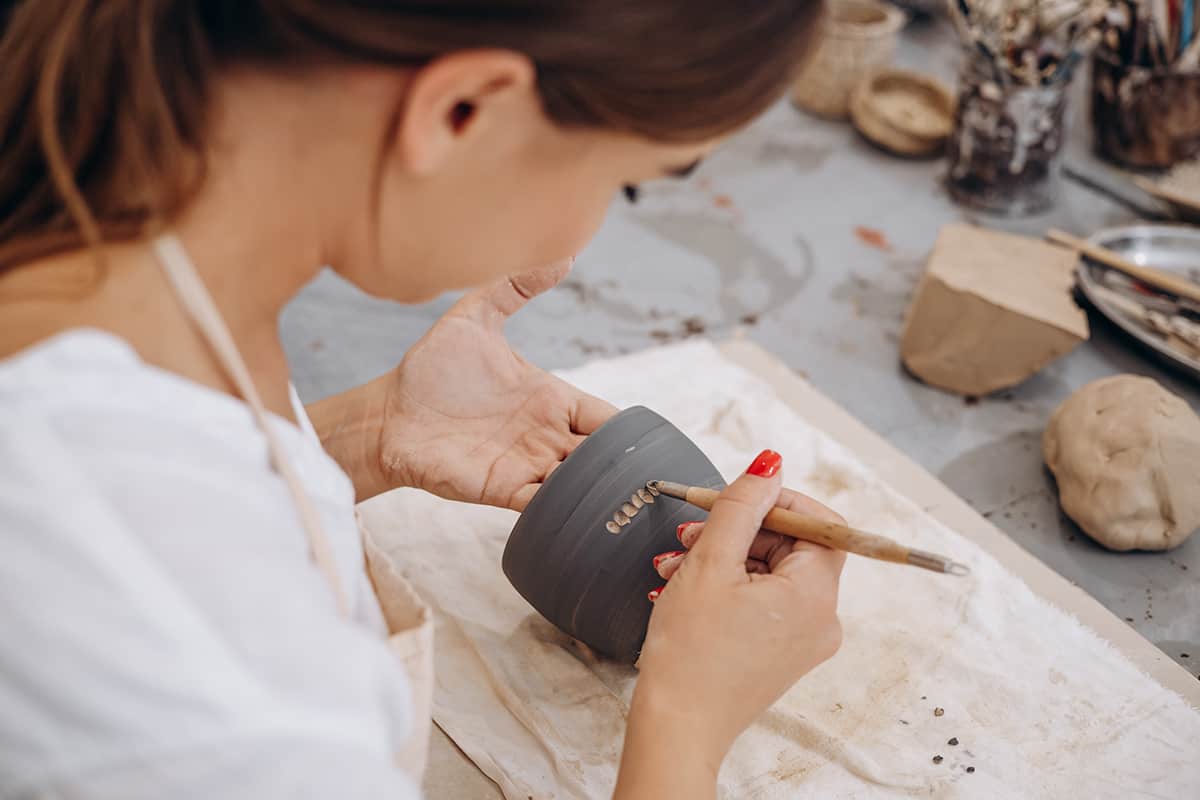
Hand-painted ceramic dishes are unique and visually appealing, but their delicate nature makes them vulnerable to damage when washed in a dishwasher. The combination of high temperatures, strong water pressure, and abrasive detergents can lead to the fading, chipping, or peeling of the intricate paintwork.
To protect the artistic value and longevity of your hand-painted ceramics, gently clean them by hand using warm, soapy water and a soft cloth or sponge, taking care to avoid scrubbing the painted areas too harshly. After washing, let the ceramics air dry to ensure they remain vibrant and undamaged for years to come.
8. Gold or Silver Accented Dishware
Dishes with gold or silver accents can become discolored if washed in the dishwasher. The chemicals in dishwasher detergent can react with the metal and cause it to tarnish. To keep your gold or silver-accented dishware looking shiny, wash it by hand with a bar of gentle dish soap.
9. Pressure Cooker Lids
Pressure cooker lids have rubber seals and gaskets that can be damaged by the heat and detergent in a dishwasher. To keep your pressure cooker working properly, wash the lid by hand with warm soapy water, and check the seals and gaskets for wear or damage regularly.
10. Aluminum Cookware
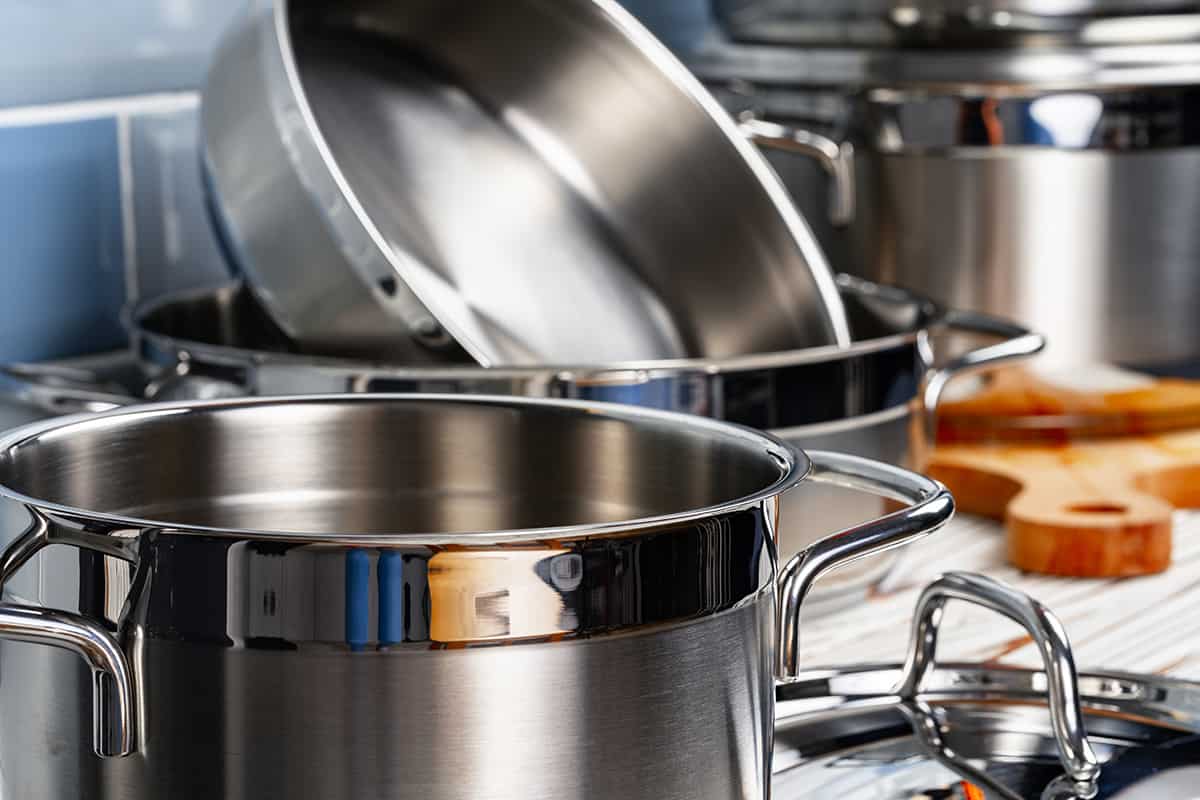
Aluminum pots and pans can become discolored or pitted if washed in a dishwasher. The harsh detergent can react with the metal and cause damage. Keep your aluminum cookware looking new by washing it by hand with warm soapy water and a soft sponge.
11. Cheese Graters and Garlic Presses
Cheese graters and garlic presses have small holes and crevices that can be hard for a dishwasher to clean effectively. Food particles can get trapped, leading to bacteria growth.
Wash these items by hand, using a brush to reach into the small spaces.
12. Copper Pots and Pans
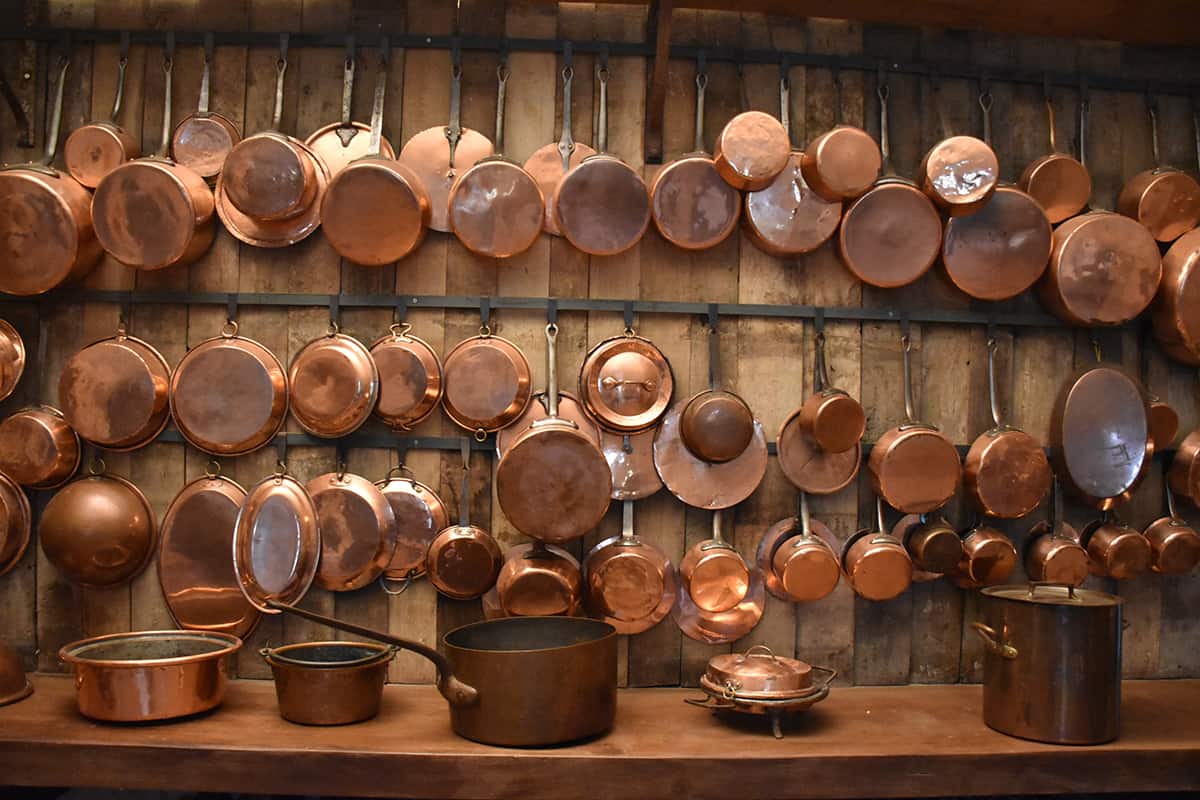
Copper pots and pans can tarnish and lose their shine when washed in a dishwasher. The chemicals in dishwasher detergent can react with the copper, causing it to darken. To maintain the appearance of your copper cookware, wash it by hand with warm soapy water and a soft cloth, and polish it with a copper cleaner as needed.
13. Plastic Items Not Marked Dishwasher Safe
Not all plastic items are safe to wash in a dishwasher. The high temperatures inside the dishwasher can cause some plastics to melt or warp, leading to potential damage or even unsafe conditions. It’s important to check whether a plastic item is dishwasher safe before putting it in the machine. Look for markings or labels indicating dishwasher safety, or check the manufacturer’s instructions.
If an item isn’t marked as dishwasher safe, it’s best to wash it by hand using warm, soapy water to avoid any damage. Taking the time to ensure that your plastic items are cleaned appropriately will help prolong their life and avoid any safety hazards.
14. Disposable Aluminum Pans and Containers
Disposable aluminum pans and containers can become damaged in the dishwasher, potentially contaminating your other dishes with small pieces of aluminum. Instead of washing these items, recycle them or, even better, use reusable containers and cookware to reduce waste.
15. Dishwasher-Safe Items with Food Debris
Before putting items in the dishwasher, you should scrape off large food particles. If you don’t, the food can clog the dishwasher’s filter and spray arms, reducing its cleaning effectiveness. You don’t need to get rid of all the food remnants on your dishes; just the large bits like bones and solid debris.
16. Fragile Items
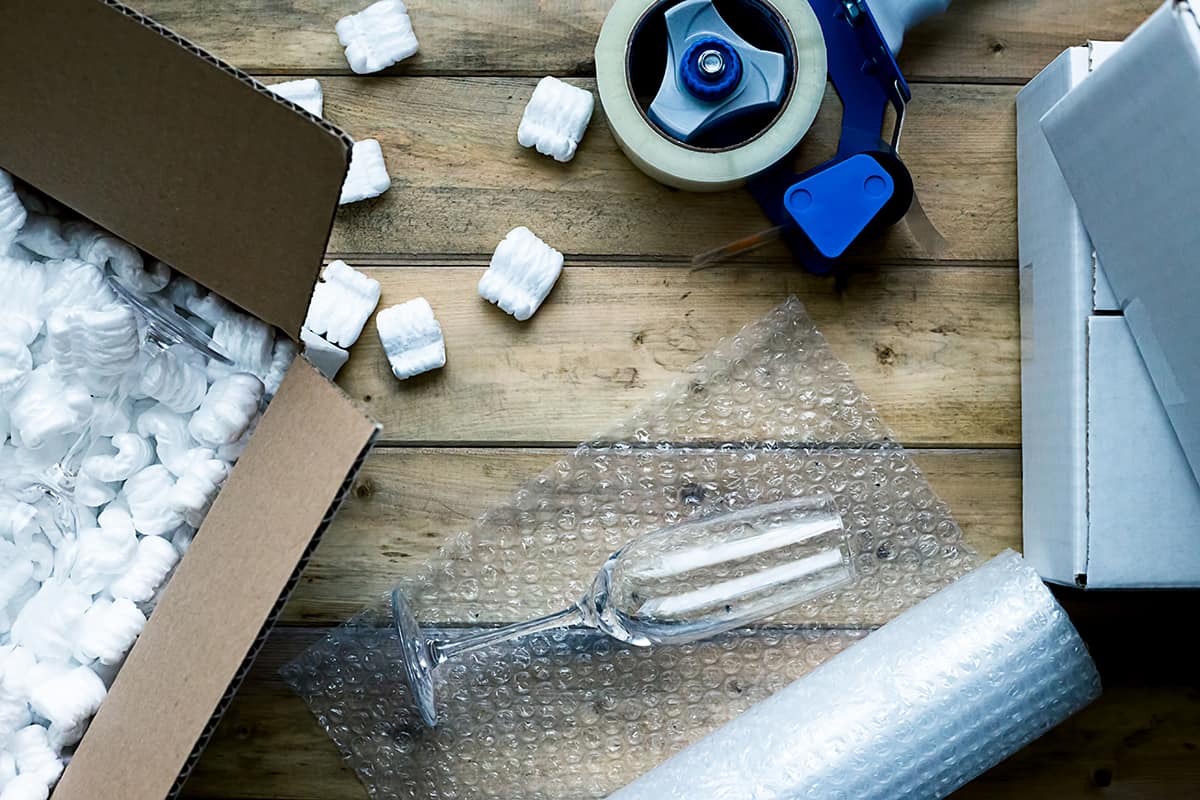
Delicate items, like fine china or thin glassware, can be damaged in a dishwasher due to the forceful water jets and high temperatures. To protect your fragile kitchenware, wash it gently by hand with warm soapy water and a soft cloth.
17. Adhesive Labels and Stickers
Adhesive labels and stickers can come off in the dishwasher, clogging the filter and spray arms. Before washing items with labels or stickers, try to remove them completely. If they don’t come off easily, soak the item in warm soapy water to loosen the adhesive before washing.
18. Baby Bottles and Accessories
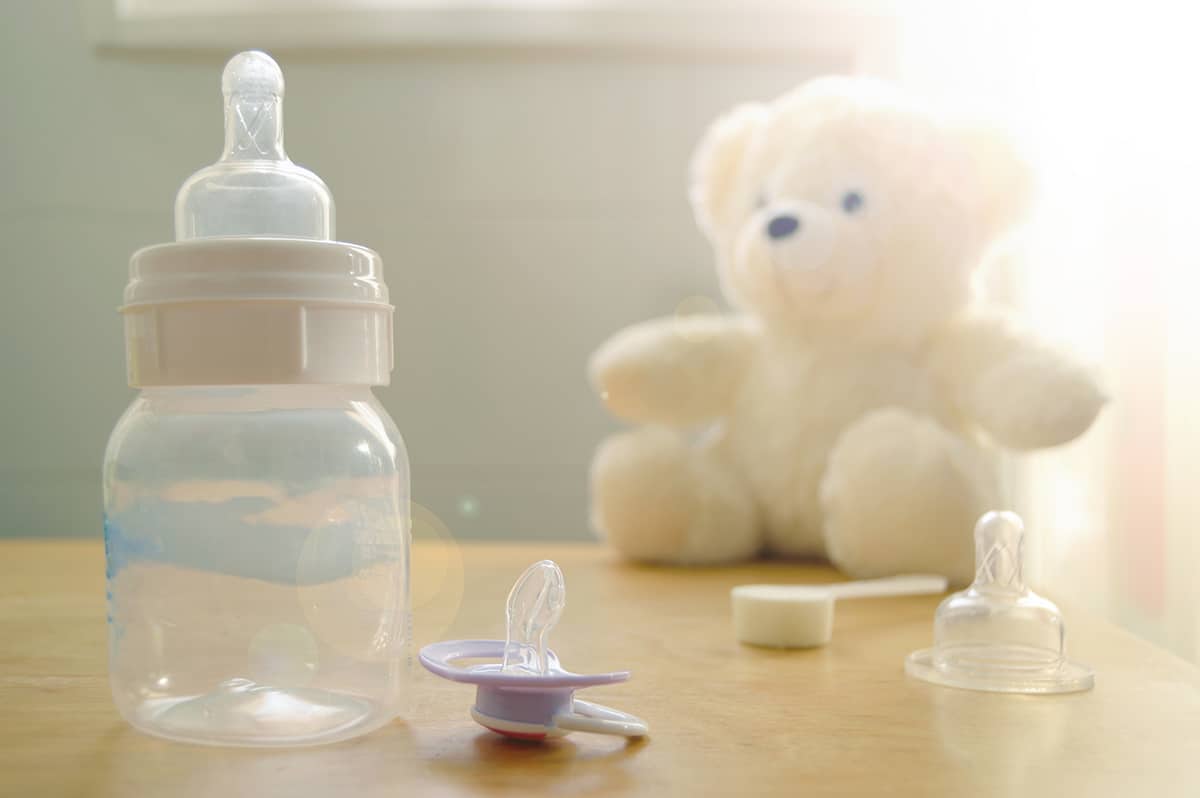
Keeping baby bottles and accessories clean and hygienic is crucial for the health and safety of your little one. While some baby bottles and accessories may be dishwasher safe, it’s important to ensure that they’re thoroughly cleaned and sanitized before each use.
To ensure proper cleaning, place smaller items in a dishwasher basket and ensure that all formula or food debris is thoroughly rinsed off before washing. Be sure to always check the manufacturer’s instructions for specific cleaning recommendations, as some items may require special cleaning procedures to ensure their safety and effectiveness.
19. Air Fryer Food Baskets
Air fryer baskets have a non-stick coating that can be damaged by harsh detergents and high temperatures in a dishwasher. The dishwasher’s powerful water jets can also cause the non-stick coating to wear off over time, reducing the basket’s effectiveness.
Small food particles may not be effectively removed from the basket’s tiny holes, leading to residue build-up and potential bacterial growth. It’s best to wash it by hand with warm, soapy water and a soft sponge or brush, ensuring all food debris is removed.
20. Household Items Not Intended for Dishwashers
Dishwashers are designed for cleaning kitchen items. Washing unrelated items in the dishwasher may damage them and the machine. Always follow the manufacturer’s cleaning instructions for non-kitchen items, and use appropriate cleaning methods for each item. Of course, there are exceptions to this rule!
